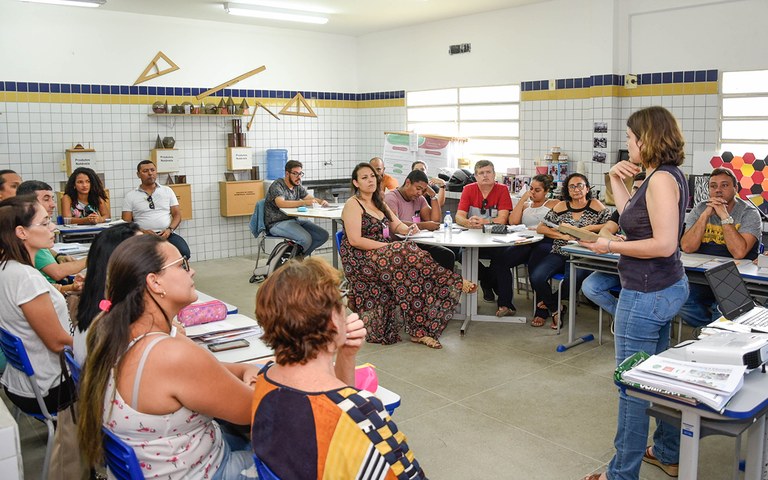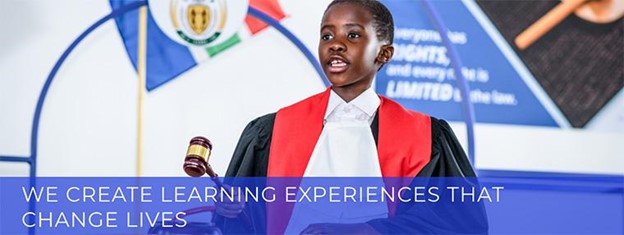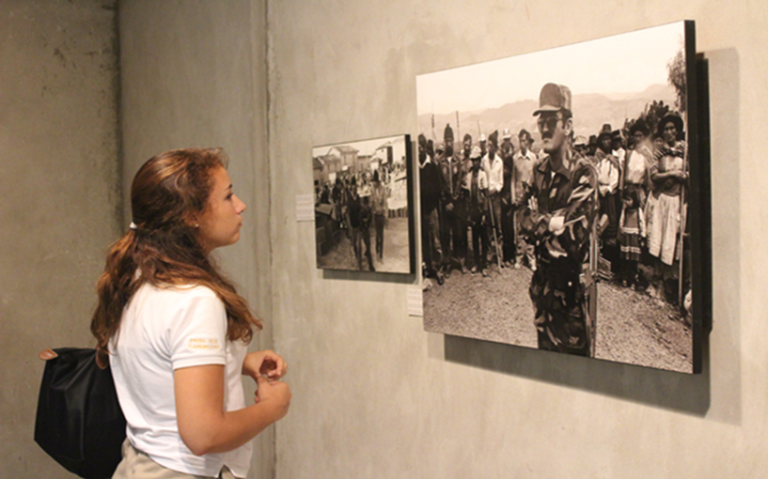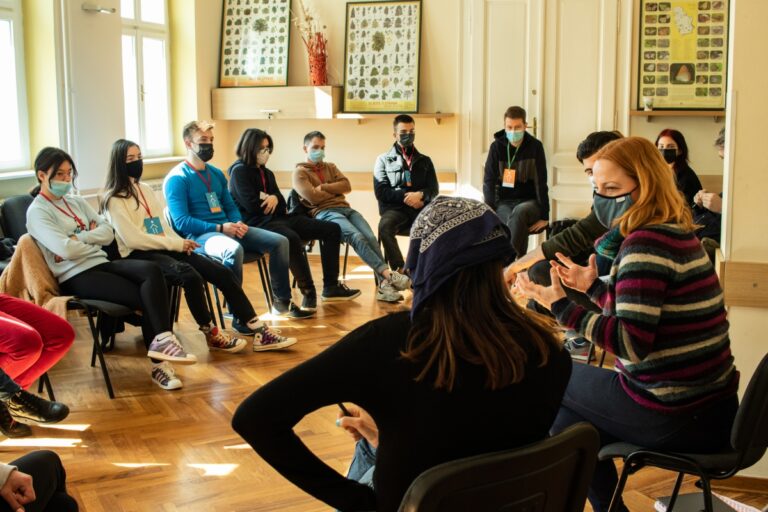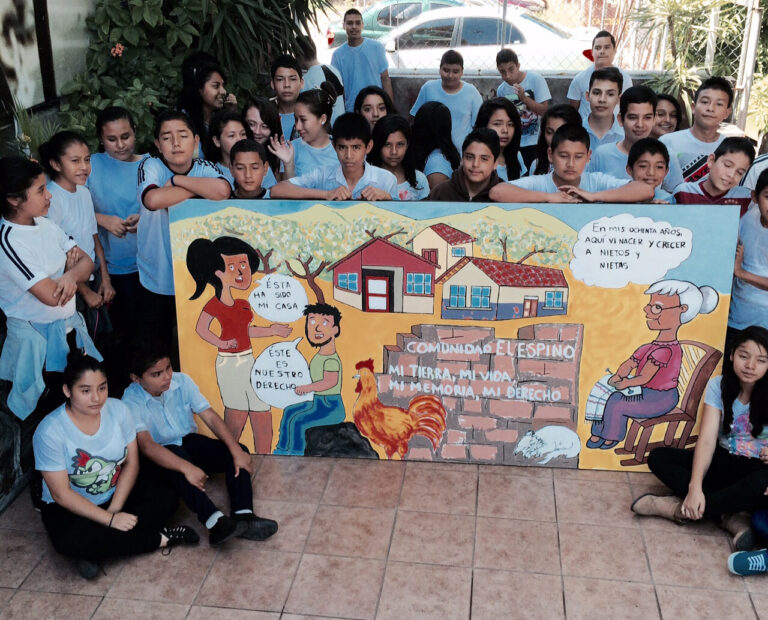CURRICULUM REFORM AND TRANSITIONAL JUSTICE
In post-conflict societies, decades of violence often lead to hatred, vengeance, and fear among the population, as well as the perpetuation of myths that vilify or victimize specific groups. These perceptions and experiences of trauma are transferred across generations, breeding ongoing cycles of conflict and preventing the realization of sustainable peace. Education can play a key role in either disrupting or perpetuating these harmful patterns.
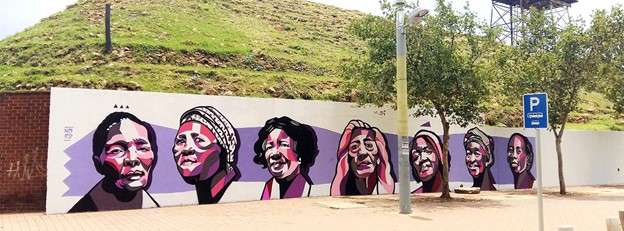
Context
Formal and informal history and civic education for children and teenagers can contribute to debunking myths and stereotypes that surround groups based on their ethnic, religious or national identities and can establish dialogues that support equality, justice and peace.
Project Details
The GIJTR project on Curriculum Reform seeks to examine the ways in which changing the way history is taught to students in schools can contribute to breaking the cross-generational cycles of trauma and cultures of violence, while contributing to durable peace and social cohesion. Project partners will draw lessons from countries such as Rwanda, South Africa, Indonesia and Cambodia that have undertaken formal curriculum reform processes and therefore transformed their official national course programs for students. The project will also draw lessons from civil society organizations (CSOs) in other countries such as Bangladesh, Côte d’Ivoire, and Albania that have created informal programs to support peace and promote a culture of human rights among youth, and have relevant lessons to share for state-sponsored history and civic education reform.
Project Objectives
Analyze approaches, successes, challenges and key lessons learned from formal curriculum reform processes and informal education programs targeting children in grade school, middle school and high school in countries emerging from conflict or authoritarian regimes.
18 case studies analyzing best practices and key lessons learned in relation to curriculum reform, transitional justice and atrocity prevention will be developed by partners in diverse contexts.
Encourage exchange and learning on curriculum reform best practices amongst CSOs, educators and other key stakeholders working on educational initiatives that aim to disrupt cyclical patterns of violence and the cross-generational transfer of trauma.
Forty CSOs representatives, educators and other key stakeholders will share best practices for curriculum reform based on experiences in formal and informal education as part of a three-day virtual event.
Development of Global Recommendations on Curriculum Reform
A resource paper with a series of practical and adaptable recommendations on curriculum reform and transitional justice will be developed, to be shared with GIJTR partners’ broad networks of local partners and activists across multiple regions.
GIJTR called for case studies developed by Sites of Conscience from around the world that highlight both government and civil society initiatives that have promoted and enhanced peace and a culture of democracy and human rights among youth through education. There is a recognition that in fractured societies that have experienced repression, violence, conflict and atrocities, histories are often highly contested resulting in a need to develop rigorous processes of human rights education and peace-building.
The following 18 case studies on curriculum reform and transitional justice highlight the varied approaches taken in different societies and demonstrate the value of learning from a wide range of experiences.
Asia Justice and Rights, Timor-Leste. Available in English.
Fond B92, Serbia. Available in English.
Caminos de la Memoria, Peru. Available in English and Spanish.
Centre for the Study of Violence and Reconciliation, South Africa. Available in English.
Citoyenne Engagée pour le Leadership et la Démocratie – Cote d’Ivoire, Côte d’Ivoire. Available in English and French.
Constitution Hill and Human Rights Media Center, South Africa. Available in English.
District Six Museum, South Africa. Available in English.
Documentation Center of Cambodia, Cambodia. Available in English.
Gernika Gogoratuz, Spain. Available in English and Spanish.
Humanitarian Law Center. Available in English.
Liberation War Museum, Bangladesh. Available in English.
Memorial para la Concordia, Guatemala. Available in English and Spanish.
Museo de la Palabra e Imagen, El Salvador. Available in English and Spanish.
Museo de la Memoria Rosario, Argentina. Available in English and Spanish.
Museo de la Memoria y los Derechos Humanos, Chile. Available in English and Spanish
Núcleo de Preservação da Memória Política, Brazil. Available in English and Portuguese.
Trust for Indigenous Culture and Health (TICAH), Kenya. Available in English.
Tuol Sleng Genocide Museum, Cambodia. Available in English

